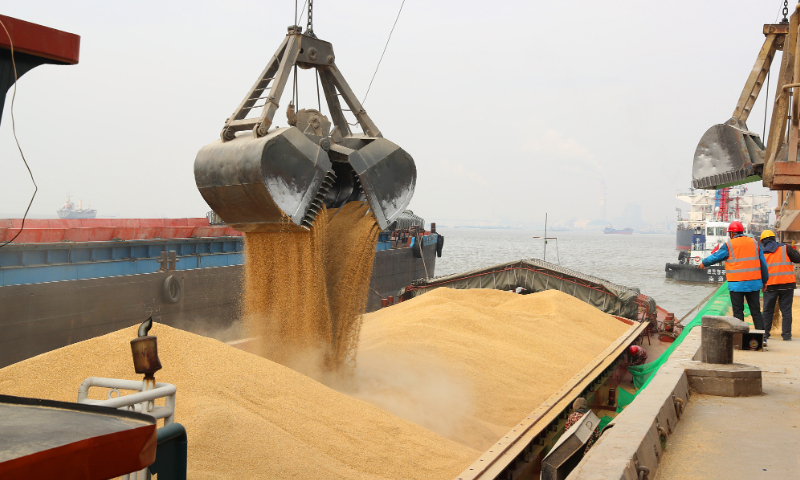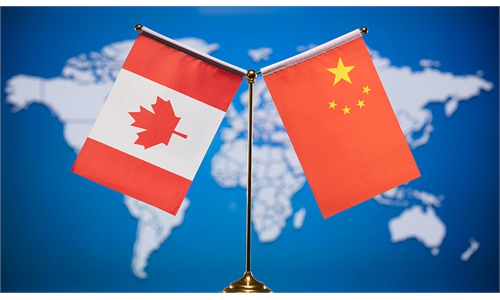Traders look at alternatives to Canadian goods amid political tensions after diplomat expulsion

Workers are unloading and transferring barley imported from Canada, on December 18, 2020 at a terminal in Nantong, East China's Jiangsu Province. Photo: VCG
Importers that have major trading business with Canada may diversify their sources of supplies in response to rising tensions after Canada's unreasonable expulsion of a Chinese diplomat, industry insiders said.
China and Canada are engaged in tit-for-tat diplomatic expulsions as Beijing declared a consul of the Consulate General of Canada in Shanghai as "persona non grata" on Tuesday, asking the Canadian diplomat to leave China before Saturday, a legitimate countermeasure after the Canadian government hyped China's so-called interference in Canada's internal affairs and expelled a Chinese diplomat.
The diplomatic row has led to concerns about the potential impact on trade, and some industry insiders are looking to divert their business to reduce risks, the Global Times learned.
The CEO of a Changzhou-based trading company in East China's Jiangsu Province, which trades with countries including Canada, told the Global Times on Thursday that it has been importing timber from Canada for a decade, but the recent political tensions have posed concerns about how sustainable the trade can be.
To diversify its sources, the company is reducing imports from Canada, with just 900,000 cubic meters imported last year compared with 1.32 million cubic meters in 2021.
Given the current situation, the company thinks imports could further drop this year, and it is seeking alternatives from other countries such as Russia.
A Shandong-based trader of seafood told the Global Times he is also concerned about the worsening bilateral relations.
China takes around 80 percent of the country's Arctic Sweet Shrimp exports, and soaring demand amid pent-up consumption means the price has nearly doubled from the beginning of the COVID-19 epidemic, the person said.
However, worsening bilateral relations may pose a risk to this trade.
He urged the Canadian government not to further damage bilateral relations, since the domestic market's confidence in and enthusiasm toward Canadian products may be affected. "We may reduce imports from Canada and turn to other countries," he said.
Cases such as that of Meng Wanzhou have had an impact on bilateral trade, Zhou Mi, a senior researcher at the Chinese Academy of International Trade and Economic Cooperation, told the Global Times on Thursday.
"Chinese consumers may reduce their preference for Canadian products as they notice the hostile stance of the Canadian government toward China," Zhou said.
China is Canada's second-largest trading partner, second-largest source of imports and second-largest export market, all second only to the US, the Ministry of Commerce said. China is an important market for Canadian goods ranging from agricultural products to seafood and forestry products.
On May 9, the Canadian government declared a diplomat of the Consulate-General of China in Toronto "persona non grata." China strongly condemns and firmly opposes this and has lodged serious démarches and a strong protest to Canada, Chinese Foreign Ministry spokesperson Wang Wentao said on Tuesday.
China has never interfered in other countries' internal affairs, Wang said, noting that these are cases of ideological and political manipulation designed to slander and denigrate China.

